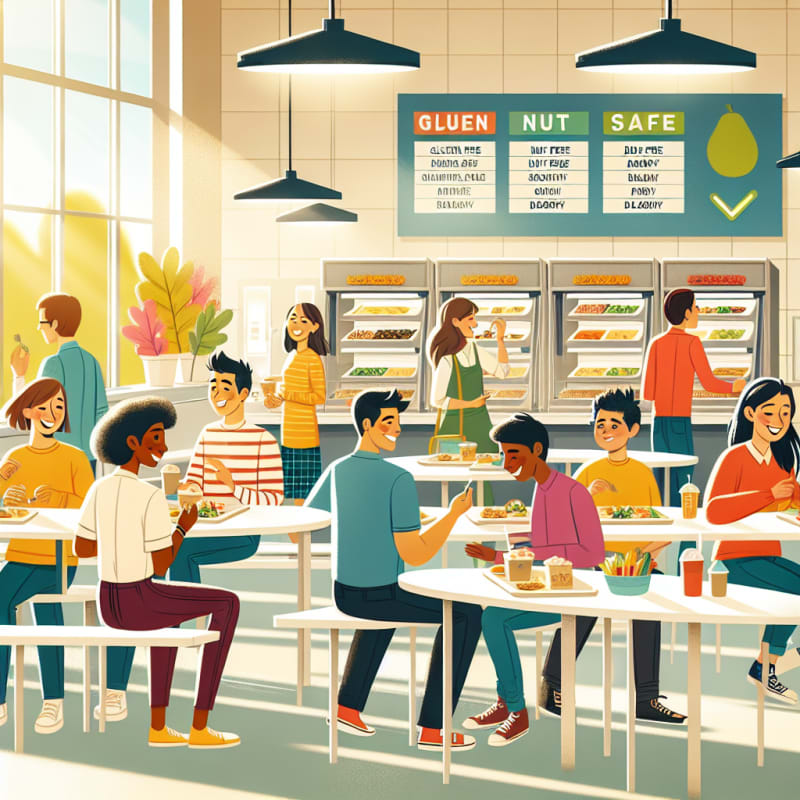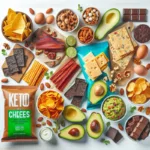Oregon Prisons Face Lawsuit Over Denial of Muslim Inmates’ Halal Meals and Holiday Visits
Imagine this: A parent prepares a simple pasta dinner for their child, only to witness an unexpected allergic reaction. The culprit? An undisclosed ingredient on the label. For families navigating food sensitivities, religious dietary rules, or ethical eating, the stakes are high—whether at home or, as recent news shows, behind bars.
Overview: Legal Battle Over Halal Meals in Oregon Prisons
In June 2024, Muslim inmates in Oregon filed a federal lawsuit against the Oregon Department of Corrections (ODOC), alleging the denial of religiously compliant Halal meals and restrictions on holiday visits (Oregon Capital Chronicle). The suit claims violations of the First Amendment and the Religious Land Use and Institutionalized Persons Act (RLUIPA), highlighting broader issues of food access, labeling, and rights for people with dietary restrictions.
Why Halal Food Access Matters
- Religious Freedom: Halal diets are a core tenet for practicing Muslims, similar to Kosher diets for Jews or vegetarian diets for some Hindus.
- Health & Safety: Inadequate labeling or cross-contamination can cause allergic reactions or ethical violations (FDA Allergen Labeling).
- Legal Precedent: U.S. courts have ruled that prisons must accommodate inmates’ sincerely held religious beliefs, including dietary needs (RLUIPA Law).
Key Issues in the Oregon Lawsuit
| Issue | Inmate Claim | ODOC Response |
|---|---|---|
| Halal Meal Access | Meals lack Halal certification, risk cross-contamination | ODOC says meals meet “nutritional” standards |
| Holiday Visits | Muslim inmates denied family visits during Eid | ODOC cites security and scheduling constraints |
| Labeling & Transparency | Unclear ingredient sourcing, risk of unintentional violations | ODOC states compliance with general food safety rules |
Food Labeling Laws: U.S. vs. EU
- U.S. (FDA): Requires clear labeling of top 9 allergens, but religious certifications (Halal, Kosher) are voluntary (FDA Food Allergies).
- EU (EFSA): Mandates comprehensive allergen disclosure, stricter ingredient traceability, and clearer labeling for food sold in the EU (EFSA Food Allergens).
Takeaway: U.S. food labeling often leaves gaps for religious or ethical eaters, while EU rules provide more robust protections.
Food Safety Alerts & Emerging Trends
- Product Recalls: Recent FDA recalls highlight risks of undeclared allergens and contamination (FDA Recalls).
- Dietary Regulations: The U.S. is considering new rules for plant-based and “cell-cultured” meat labeling (Food Dive).
- Food Trends: Demand for Halal, Kosher, vegan, and allergen-free products is rising, with brands reformulating for transparency and ethical sourcing (NY Times).
Impact: These changes affect consumers with food sensitivities, religious diets, and ethical concerns—making accurate, accessible ingredient information more critical than ever.
How Food Scan Genius Empowers Smart Food Choices
Food Scan Genius is a free app designed to help people with food sensitivities, allergies, or dietary preferences—whether for health, religion, or ethics. Simply scan a product’s barcode to:
- Check for allergens (including cross-contamination risks)
- Identify Halal, Kosher, vegan, or gluten-free status
- Compare ingredient lists (U.S. vs. EU packaging)
- Get instant food safety alerts and recall notifications
“As a parent of a child with severe allergies, Food Scan Genius has been a lifesaver. I can scan any product—even in a hurry—and know if it’s safe for my family. I wish every institution, including prisons, used this technology!” — Maria L., Portland, OR
Download Food Scan Genius to simplify your food choices and stay safe, wherever you eat.
FAQ: Oregon Prisons, Halal Meals & Food Labeling
Why are Halal meals important in prisons?
Halal meals are essential for Muslim inmates to practice their faith. Denying these meals can violate religious freedom rights under U.S. law.
How do U.S. and EU food labeling laws differ?
The U.S. requires allergen labeling for the top 9 allergens, but religious certifications are voluntary. The EU mandates broader allergen disclosure and stricter labeling, offering more protection for consumers.
How can Food Scan Genius help with dietary restrictions?
Food Scan Genius allows users to scan products for allergens, dietary certifications (Halal, Kosher, vegan), and receive real-time food safety alerts, making it easier to manage dietary needs.
Conclusion: Empowering Informed Food Choices
Whether you’re a parent, a consumer, or an advocate for food rights, understanding what’s in your food—and having the right tools—makes all the difference. The Oregon prison lawsuit spotlights the real-world impact of food labeling, dietary rights, and transparency. With Food Scan Genius, you can take control, avoid hidden risks, and make smart, safe choices for yourself and your family. Download the app today and put food confidence in your hands.





